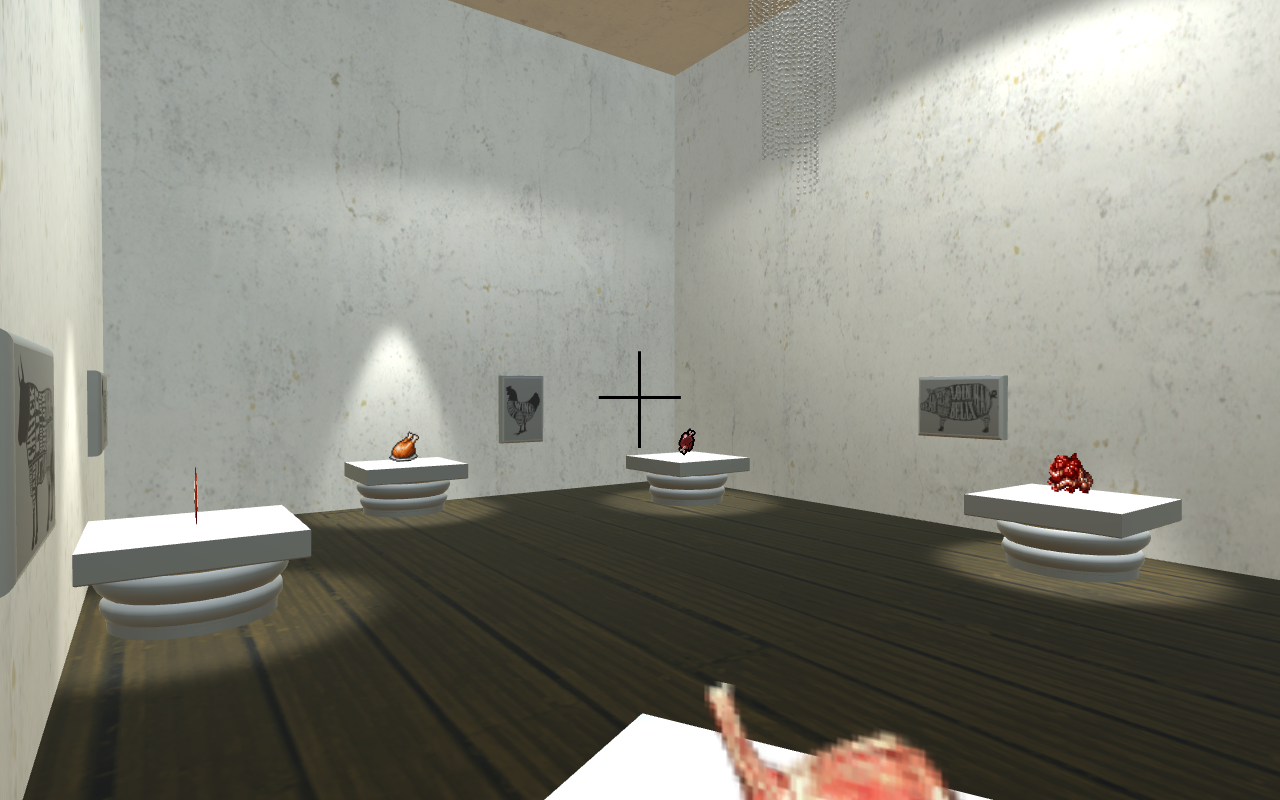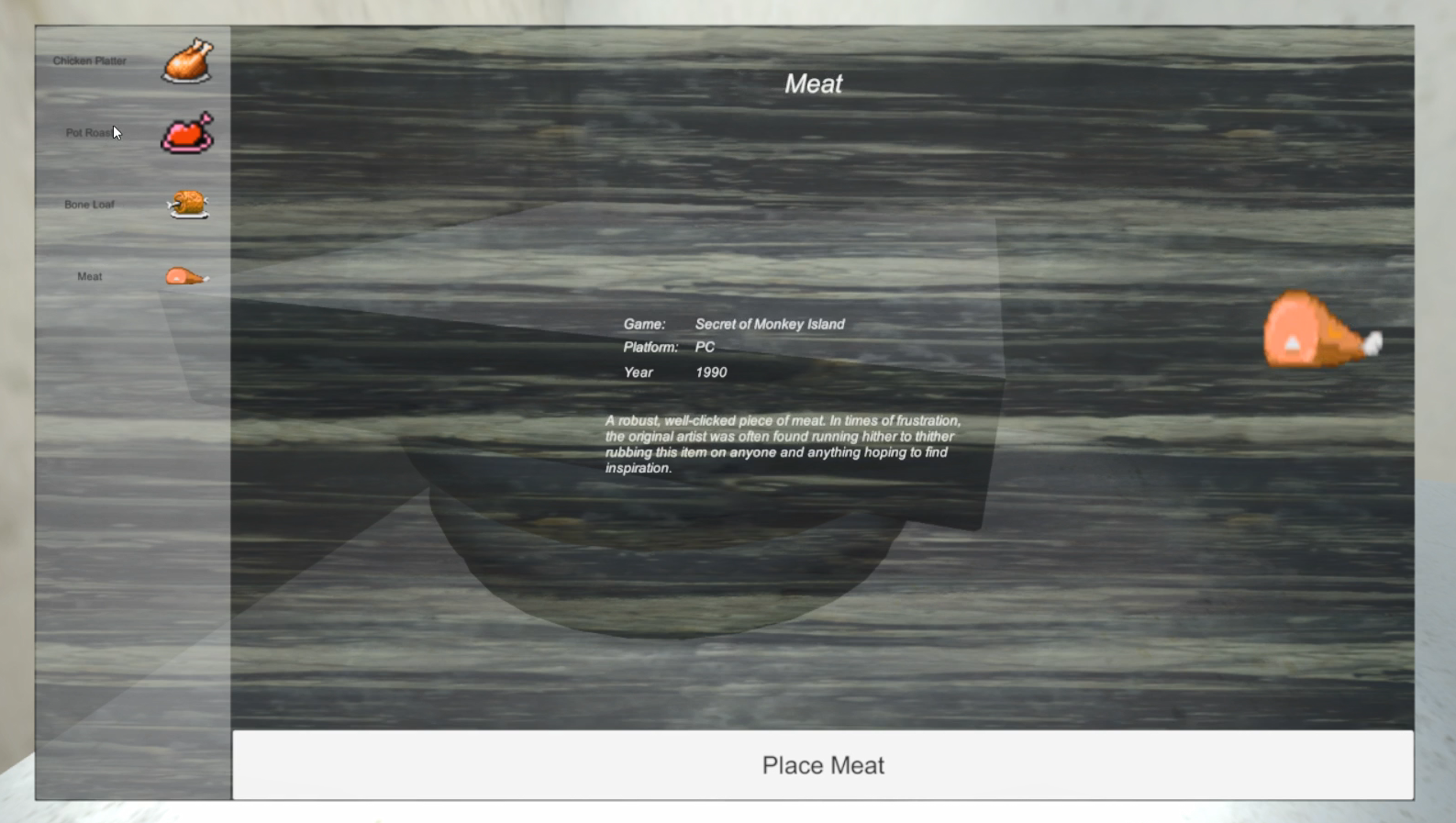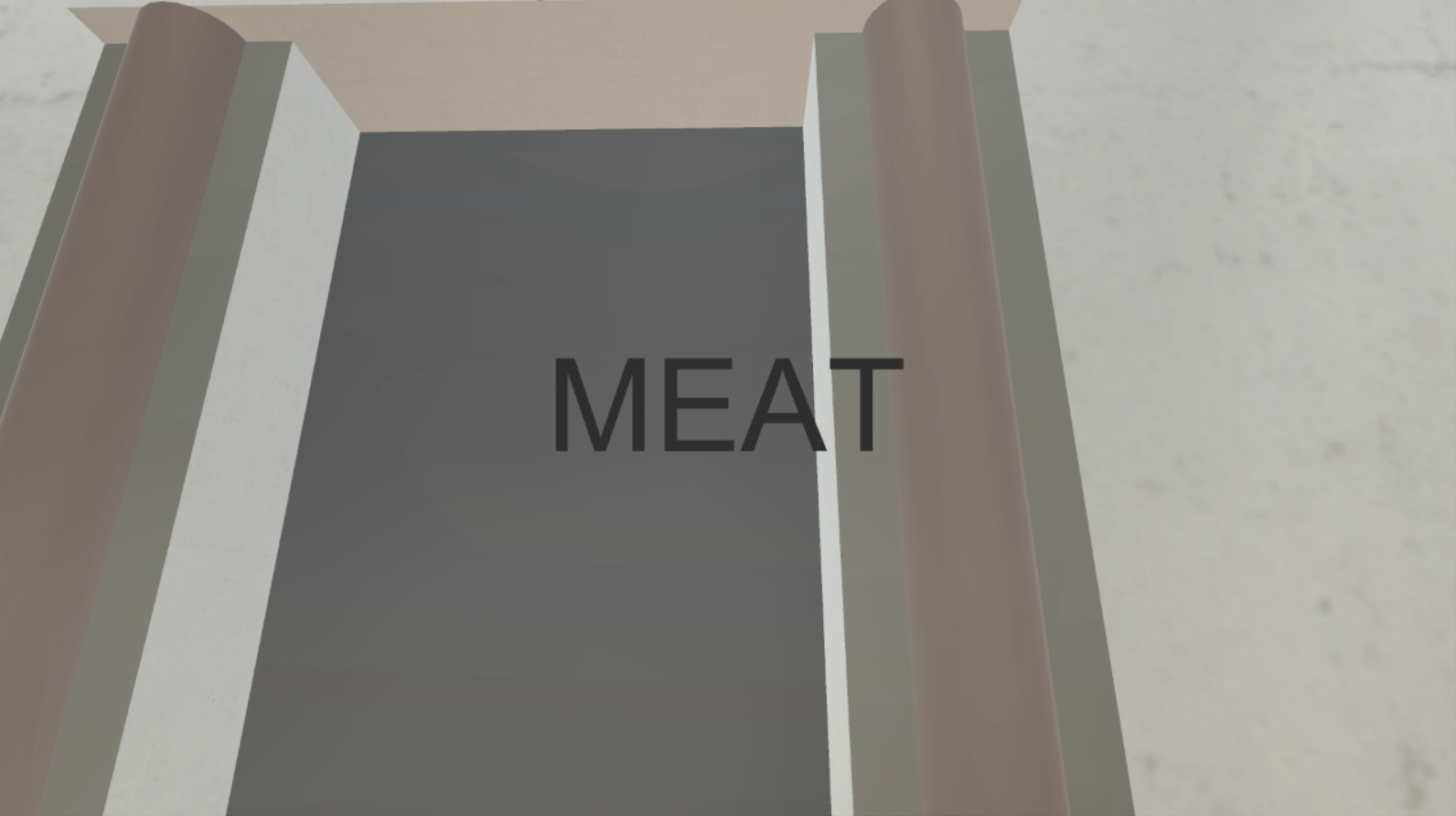Have you ever been so intrigued by the premise of a game alone that you had to play it? That’s the situation I found myself in with Historical Beef. Created by Elliot Page and Hugh O’Brien, it’s available for free on Itch.io. Even knowing it’s a short, free, joke game, I still came away disappointed. Not because the game is bad, but because it could be so much more than what it is.
Hey, Beef Cake
Historical Beef is essentially a joke game, and its creators say they were in a “confused haze” when they made it. Still, the concept had my rapt attention. As the Itch.io page describes it, you play an art curator at a fancy-pants museum whose clientele crave something… different. It’s the far future, and disease like cancer and anime (the developers words, not mine) have long been cured, and the masses are growing bored.
Enter the ghosts of meat products from video gaming past. Or rather, pixelated versions of meat products from various games over the years. Trust me, you’ve never really grasped how many games use meat in some form of a health item until you play this game.
 The Itch.io page lays continues, saying your character is at first stumped, until it hits you.
The Itch.io page lays continues, saying your character is at first stumped, until it hits you.
“The answer comes to you at your darkest moment – walking home from the pub you are accosted and bitten by a rabid Double Dragon Arcade Cabinet, which scampers off into the night. Otherwise unharmed, you return home and are blighted by intense dreams while you sleep. Waking in a sodden bed, you realise you have found your answer. Two words escape your lips, unbidden: Historical Beef. ”
Even as a joke, that’s some pretty fantastic writing. As far as gameplay goes, the page makes it pretty clear. You walk around the museum, placing 2D sprites of various meats throughout the history of gaming on a series of pedestals. When you’re done, judges will give you a grade on your arrangement.
Except, that’s not really what happens.
 Don’t Make Me the Boston Butt of Your Jokes
Don’t Make Me the Boston Butt of Your Jokes
In reality, the gameplay of Historical Beef consists of little more than walking around and clicking or reading stuff. Each piece of meat has its name, the name of the game it came from, and a funny description about its history. To “place your meat,” you simply walk up to a pedestal and click on it. Then you decide which meat to put on it, and move on to the next display. Some pedestals are harder to reach than others, requiring you to perform simplistic platforming to reach them. First person platforming is never fun, and that carries over here as well.
But none of it really matters. There are no NPC critics that “judge your meat.” You simply click on a door at the end of a level and wait a few seconds before the game spits a randomly generated compliment or insult at you. Then, just like that, you’re on to the next level.
It feels like this game exists only so the text-to-speech voice over can say “place your meat” and “display your meat” at the start and end of each level. Get it? Penis. That’s the joke.
It’s Nice to MEAT You! Hahaha humor
There’s nothing wrong with that as a joke. It got a smirk out of me at least, a low-ranking member of the “SJW anti-fun brigade.” But there could be so much more to the joke. For a start, there could actually be NPC’s that come in and judge your meat, and critique your meat with funny text-to-speech lines like “that’s a good bone,” or “I prefer medium well.” Okay, I’ll leave the jokes to Page and O’Brien.
The levels could be strewn with more obstacles as well. Maybe flame pits full of kabobs, or griddles with a giant spatula flipping burgers. If you really want to go wild, you could force the player to run from a mad chef who wants to use your meat for their recipes. That could be a good call-back to Out to Lunch.
As it is, Historical Beef is kinda lame. You can see all the game has to offer in pretty much seconds. That is kind of the point, we’re talking about a game made relatively quickly as a joke, and it’s a damn sight better than anything I could cobble together. But there’s a good foundation here, and I hope the developers don’t look at this as a one-off joke, and instead continue to refine it. This has the potential to be so much more.





